Adding services to core offerings can provide a way to cement customers to your business, meeting more of their needs and strengthening your appeal—and bottom line—in the process.
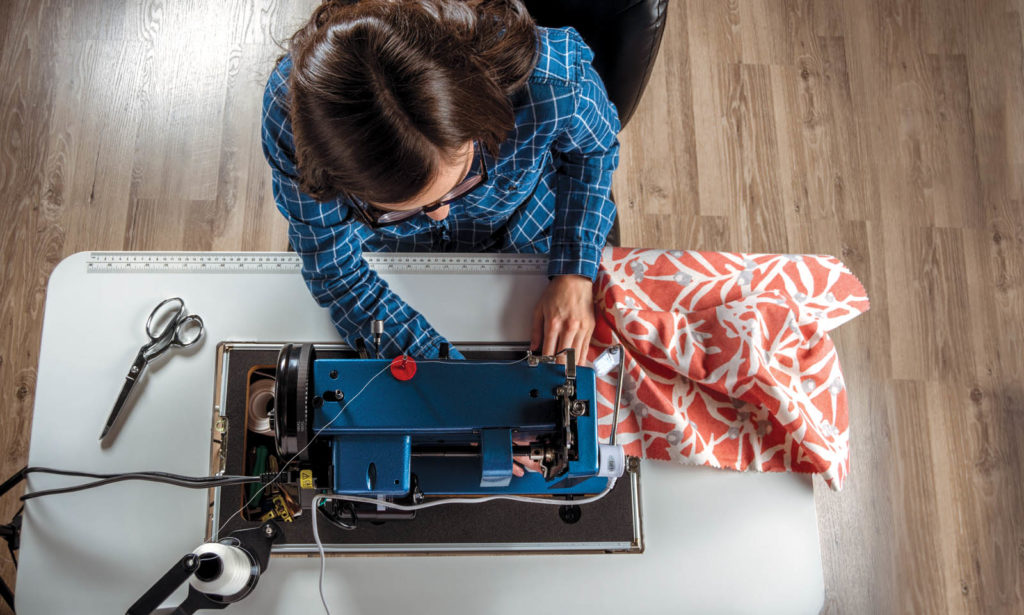
Once a company has a firm grip on its core business, attention often turns to broadening the services already offered or adding entirely new ones that build on the original offerings. Sometimes the intent is strictly bringing in more revenue. But adding services is also seen as a natural progression of a company’s growth, undertaken as a way to maintain competitiveness while providing greater value to customers. Consider Awning Cleaning Industries, located in New Haven, Conn.
“Our original core service was seasonal spring put-up, fall removal, and storage for awnings on homes, clubs and restaurants in our area,” says Scott Massey, owner and president. “We did this as a subcontractor for a local awning service and then bought the service list. From this relationship came our first added service—installation.”
The next added service was awning cleaning, which the company does in its facility or at the client’s location. “This morphed from a retail item to a wholesale one when we began offering the service to awning companies across the country,” he says. “As this grew, we morphed gain by adding a full-service repair shop/sewing department.”

Now, services include review and inspection of all fabrics, generating revenue on repairs and maintenance, as well as pickup and delivery. The company also expanded to the marine market, not just providing services to boat owners but also adding sail lofts and marine fabricators to its wholesale work. And Awning Cleaning Industries created a line of outdoor fabrics cleaners and protectors for its own use, also selling these to clients.
Review and inspection are provided at no charge; other services are offered at cost, no charge or are discounted based on company discretion.
“We’ve always kept a common thread of outdoor recreational fabrics,” says Massey of the company’s expansion strategy. “We adapt or morph according to what opportunities present themselves.”
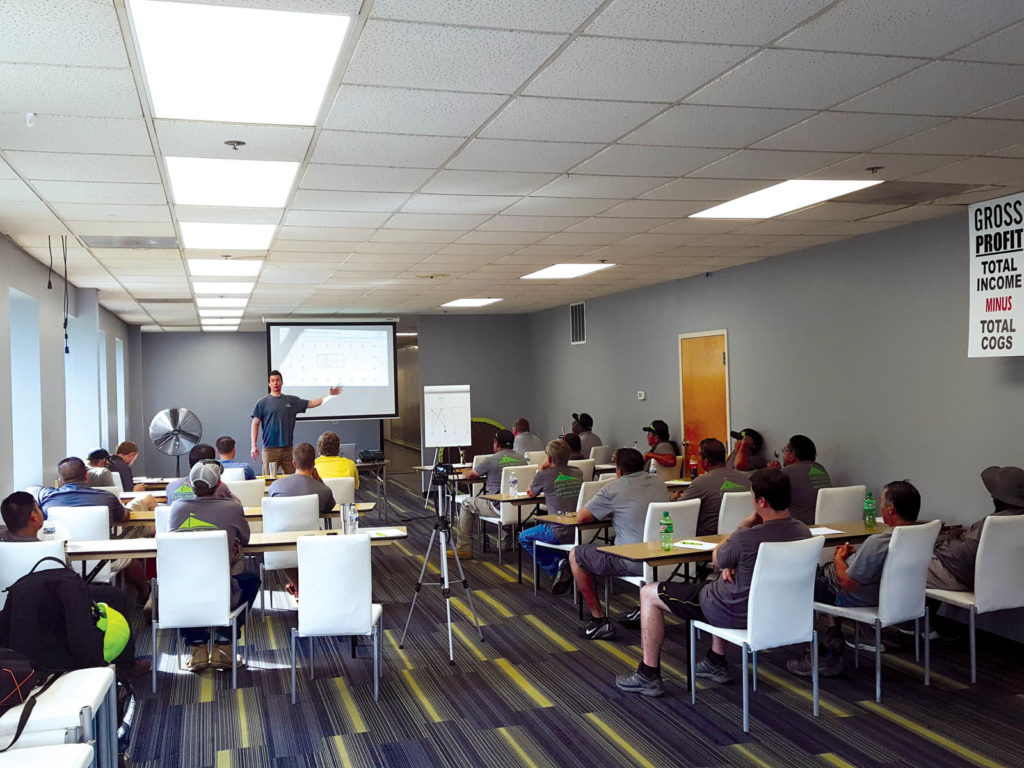
After-sales support ensures success
Losberger De Boer, which has global headquarters in Germany and U.S. headquarters and warehouse in Frederick, Md., manufactures and sells German-engineered clearspan tent structures and accessories, says Joe Langehaug, regional sales manager. These come in a range of sizes and configurations and are deployed for short-term and long-term installations.
Losberger offers an array of no-cost, added-value, after-sale services and support to customers, such as training staff at the install site or the client’s facility on installation; transportation, storage and other matters; working with the client’s sales staff on how to best present the product to their customers; and interacting with code officials on specific projects.
The company has always provided after-sales support, says Langehaug. “It just makes sense. I certainly wouldn’t want someone to drop off a newly purchased tent structure on my doorstep with just a set of instructions.
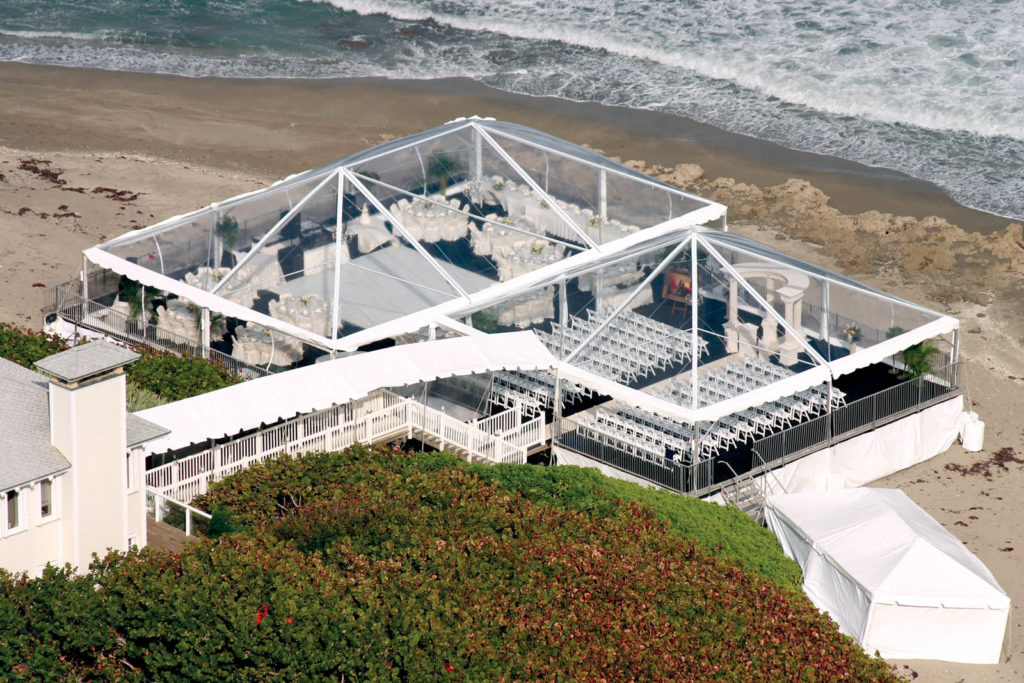
“We offer additional services because we want our clients to be successful,” he continues. “Our goal is to grow with our customers, and the only way to do this is to build trust and work with them to achieve their goals.”
Losberger is considering expanding the services it offers, such as addressing labor. “This is a big issue for the industry, says Langehaug. “We’re looking at programs to help our customers offer additional advanced training and educational classes held at our U.S. facility.”
Online content attracts buyers
Founded in 1969 and headquartered in Columbia City, Ind., Sailrite began as a mail-order company—albeit one with three storefronts in different states—producing annual catalogs featuring products for upholsterers, sewers and DIY enthusiasts, as well as project advice, says Zach Grant, marketing manager. In 1997, the company launched its first website, ultimately moving entirely online. It never stopped producing catalogs, says Grant, but now they’re digital.
Sailrite positions itself as a one-stop shop for fabric, tools, hardware and kits; supplies notions and knowledge; and also sells its own proprietary line of sewing machines for the marine and upholstery industries. The company offers an extensive selection of how-to project videos and demos on its YouTube channel, providing viewers with detailed instructions about creating boat covers, bimini enclosures, sails, upholstery, curtains, pillows and more. Additionally, its website features a “How-to Projects & Tips” section containing project blogs and product selection guides. A full-time staff member is on hand to respond to customer online chats, phone calls and emails. All of these services are free.
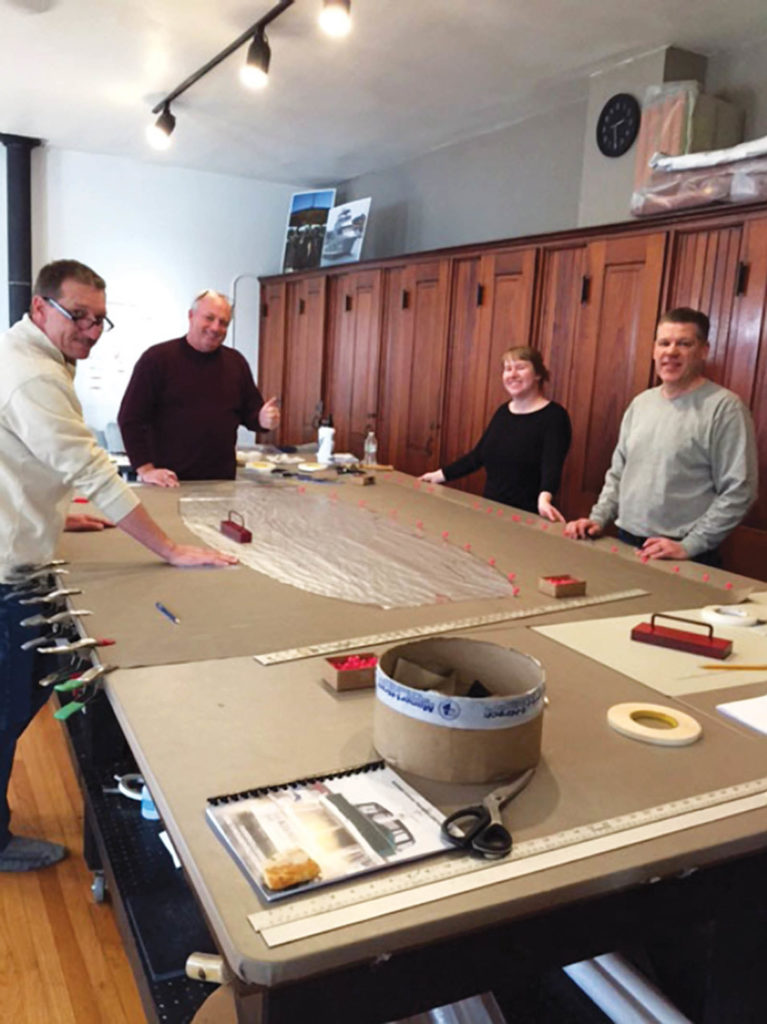
Grant says the company believes offering free content—which it has done for 15 years—encourages customer loyalty and repeat buying. Offering how-to videos also helps it enter new markets. For example, when it decided to expand from targeting sailboat owners to powerboat owners, Sailrite started producing videos and blogs featuring powerboat projects, helping to drive the upholstery shops that worked primarily with powerboats to its website.
The company is always expanding its content, says Grant, adding that every time it releases a new how-to video, the comments section is “flooded” with thanks and praise (there are more than 185,000 subscribers). In response, over the last year the company has doubled its video and blog production team to help keep up.
“As long as our list of new projects, products and new markets grow, so will our team that produces the content we offer,” says Grant.
In-person training fosters relationships
TopTec Event Tents, located in Moore, S.C., manufactures frame, pole and keder frame event tents and custom tents for the party and event rental industry. It offers an array of after-sale services such as scheduling a factory-trained representative to go to the customer’s location to help support the first install, educating the customer’s sales teams about basic tent terminology and upselling accessories. But its most popular service is its annual Tent School, which offers hands-on training in all aspects of tenting, installation and safety, says Bryan Bolt, technical solutions manager for the company.
“The Tent School is the longest running tent training program and is held at our headquarters and, as opportunities arise, on the road,” says Bolt, adding there is a “nominal fee” for the school. “Customers know TopTec will do all we can to take care of them. The Tent School is one way we put that promise into action.”


Open to those purchasing TopTec’s products and to those who haven’t, the first school was held in 1996 and has become increasingly popular, with about 100 students on average attending. Throughout the years, based on customer feedback, changing consumer tastes, industry trends and product advancements, the school has added to and/or modified the training to ensure participants receive the latest information, says Bolt, mentioning the company is “constantly monitoring” the industry.
“If a company is willing to invest in our product, we in turn invest back into that company and do all we can as a partner to see that their business grows,” says Bolt. “Relationships are pivotal in this business and we do all we can to foster them.”
Hands-on learning betters the bottom line
Fairwinds Canvas LLC is a one-stop marine canvas shop providing an array of services—such as custom-designed stainless steel frames, full canvas enclosures, interior and exterior upholstery, carpeting, window coverings and accessories—and also offers storage, cleaning and reconditioning services, says Kathryn Maisto, owner of the Racine, Wis., company. Company employees are trained in project engineering, pattern design, layout, fabrication and installation.
Then there is the Fairwinds Canvas Training Center, designed to attract students worldwide interested in opening a marine canvas shop. The center offers basic fundamentals for those with no experience and advanced techniques for business owners looking to enhance their skills. A variety of workshops are offered, ranging from those lasting three days up to five, with fees varying accordingly. This June, Maisto is launching a one- to four-month paid internship program designed to give students hands-on learning and mentoring. Potential interns/students will be required to complete the Core Fundamentals class and the Elite Power Boat Enclosure Class offered by the training center.
“A business must always invest in order to grow,” she says. “A paid internship program is costly, but we’re already experiencing a return manifested in other ways than monetary—networking and contacts are very valuable to business growth.”
Maisto says Fairwinds Canvas is always adding new classes to the training center to keep courses current and reviewing potential services that could add to the bottom line (all services bring in money).
“If someone looking in from the outside sees the same thing constantly, it may be a sign of a stagnant or tired business,” she explains. “To maintain proper structure, I do things in a stepping-stone manner. This allows me to implement enhanced ideas or change what might not be effective.”
Pamela Mills-Senn is a freelance writer based in Long Beach, Calif.
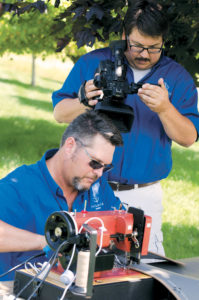
Listen to your clients. If one person is asking for something, there’s a good chance more people are thinking the same thing.
Joe Langehaug, Losberger De Boer
Don’t start adding free services with the sole intent of making money. The idea is to help customers broaden their knowledge and make them more comfortable taking on larger, more complex projects. If you only care about making money, the content will come across as a sales pitch rather than a helpful guide, which will put off potential new customers.
Zach Grant, Sailrite
Listen to customers and be willing to do what they need to help build their businesses.
Bryan Bolt, TopTec Event Tents
Make sure you’re qualified at what you’re offering. Adding a service just to fill downtime and not have qualified employees to perform it only reflects
poorly on your company’s image and standards.
Kathryn Maisto, Fairwinds Canvas LLC
Torey Heinz, founder of Teagles Consulting in Zeeland, Mich., focuses on helping small marine canvas businesses streamline their operations and provide more value-added services. He also provides a web-based software system, business software consulting services and custom software development. There are plenty of potential advantages for businesses that want to expand their services from their core products, says Heinz. However, to fully realize these benefits, a thoughtful approach is necessary. He suggests:
- Look at your best/ideal customers, those who really fit your current business. What do they like about your business? What might they still need?
- People value convenience. Think about how you can make your customers’ lives easier. For example, a marine fabrication shop could offer to clean and store boat tops each season for X-amount of dollars. Or, for X-amount an awning manufacturer could offer a year of preventative maintenance.
- Consider what you could do for other companies that might help them present better and bolster their brand.
- Review your core competencies. You want to avoid adding something that would take you too far from these.
- Evaluate your resources and what the added service would require. Would you have to take on additional employees? Would current staff have to undergo training? Would new equipment be required or would you have to expand your space? All these factors—and likely others—must be weighed against the potential payoff of the new service.
Perhaps of greatest importance is determining if the new service will enhance your brand. If not expertly implemented, it could detract from it instead, weakening the appeal of even your core products.
 TEXTILES.ORG
TEXTILES.ORG


